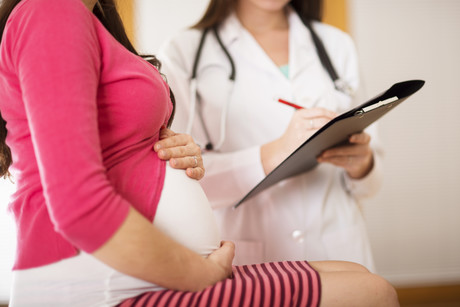Immunisation during pregnancy outweighs risks

The benefits of immunisation in pregnancy outweigh the risks, according to Australian experts in the August issue of Australian Prescriber.
Dr Kerrie Wiley, Dr Annette Regan and Professor Peter McIntyre write that checking which vaccines are due is important, both before and during pregnancy, to provide the best protection for mothers and babies when they are most vulnerable to infections.
When women are planning pregnancy, they and their medical advisors should check they are up to date with all of their immunisations. This is particularly important for live viral vaccines (measles, mumps and rubella [MMR] and varicella), as they cannot be given during pregnancy.
“Pregnant women report being bombarded with advice about what they should and should not do. There is evidence that unless it is recommended by their healthcare provider, vaccination is not a priority,” said the authors.
“Simply pointing out that it is recommended can often be enough for a pregnant woman to get vaccinated.”
During pregnancy, two vaccines are important for protection and are safe to give:
- The pertussis vaccine, which protects against whooping cough, is now routinely recommended during pregnancy and provided free of charge throughout Australia. It is safe and protects newborns against infection before they get their first vaccinations at two months, according to the authors.
- The influenza vaccine is also routinely recommended in pregnancy and provided free of charge. It provides protection from influenza to the mother during pregnancy and is the only way to protect babies against influenza during the first three months after birth.
The authors state that more than 90% of pregnant women who are immunised report doing so to protect their baby; therefore, framing the benefits of vaccination to focus on the baby is important. “When recommending antenatal immunisation, it is important to remember that pregnant women trust their healthcare providers and are primarily interested in the health and well-being of their baby,” they said.
They also recommend that close household contacts and carers such as siblings, partners and grandparents should also be up to date with all of their age-appropriate immunisations, such as rotavirus, varicella, MMR and particularly pertussis.
Hep C point-of-care test helps marginalised populations
A program using diagnostic technologies at the 'point of care' is helping combat...
Stigma around lung disease and cancer must go
Data from Lung Foundation Australia's Lived Experience Survey has showed the debilitating...
High-five for a sustainable path to better hand hygiene
Ahead of World Hand Hygiene Day, an emergency physician explains why hand hygiene is needed all...










